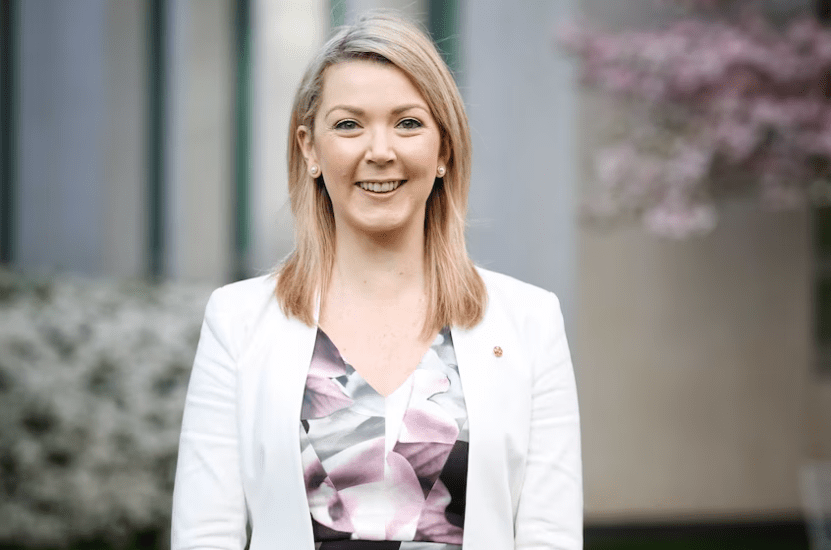The head of Australia’s peak body representing young people with disability has warned that increasing government scrutiny on NDIS fraud, while necessary, risks fuelling damaging public perceptions and diverting attention from urgent reforms — particularly in education and regulation.
Former South Australian Senator, Skye Kakoschke-Moore, and CEO of Children and Young People with Disability Australia (CYDA), told The Back Cover podcast that while rorts in the scheme must be tackled, sensationalised media headlines can undermine public trust in the life-changing purpose of the NDIS.
“This is such an important question because when we talk about fraud, fraud’s unacceptable in any context. And when we’re talking about fraud in the context of the NDIS, it’s important, but it can also fuel effects because that narrative often takes the focus away from the life-changing supports that the National Disability Insurance Scheme can and does provide,” she said.
“You don’t need to look far for headlines that scream the words NDIS together with ‘burden’ and ‘scam’. For people from the disability community, this may be the only commentary they hear about the NDIS — but this is the same NDIS that funds supports that mean a young person with disability is able to build their skills, get help with daily tasks that many of us take for granted, and participate in the community with their friends and family.”

Her comments come as the NDIS Quality and Safeguards Commission continues rebuilding its reputation following a damning review last year which found it failed to shut down a controversial therapy program that placed children at risk of death.
The review was launched after it was revealed that Melbourne’s Irabina Autism Services had unlawfully restrained children with autism and intellectual disabilities as part of a US-imported behavioural program. Eighteen children aged 10–14 were subjected to harmful practices, including being held in windowless rooms for hours and physically restrained — sometimes in face-down positions — by staff in headgear and protective equipment.
“Last year we saw what can happen when action isn’t taken,” Kakoschke-Moore said. “It came to light that the NDIS Quality and Safeguards Commission, which is essentially like the watchdog for the NDIS, failed to take action when it became aware that a provider was illegally restraining children in the name of therapy. This caused shockwaves throughout the disability community because you could see that government funding was being used in a way that was resulting in unauthorised restrictive practices and serious harm being perpetrated on children.”
Although the Commission has since ramped up its response to complaints and regulatory breaches — including issuing public banning orders — Kakoschke-Moore said long-term trust can only be built through consistent transparency and action.
“Young people with disability really deserve to be able to trust that the services and supports they’re getting will show up on time, that these supports are going to uphold their rights, and that they’re not going to be overcharged.”
She said families have likened price hikes faced by NDIS participants to the so-called “wedding tax,” where services cost more simply because of the customer’s status.
“The same kind of thing happens in the NDIS space, where as soon as you mention that you’re an NDIS participant, people are seeing that the prices increase. So this is a real issue.”
Kakoschke-Moore also called for urgent reform of the education system, which she said continues to fail students with disability through systemic exclusion, unconscious bias, and under-resourced schools.
“Education is so powerful that it’s recognised as a fundamental right for children and young people through the Convention on the Rights of the Child,” she said. “Many of the issues that come about in relation to exclusion, bullying, higher dropout rates can often be attributed to a couple of things — attitudes towards disability and also low expectations about children and young people with disability.”
“But we need to remember that more often than not, it’s not intentional… it’s that unconscious bias that’s leading to that discrimination.”
CYDA is calling for a National Roadmap for Inclusive Education, a key recommendation of the Disability Royal Commission. Kakoschke-Moore said it would send a clear message that states and territories must do more to accommodate diverse learning needs.
“What we’re asking for from the government and from society is a fundamental change in how we look at education, particularly for students with disabilities.”
Surveys conducted by CYDA between 2022 and 2023 paint a disturbing picture. In school settings:
-
70% of students reported being excluded from events or activities
-
65% reported experiencing bullying
-
Only 27% felt supported to learn at school
-
Only 35% of families believed teachers had the training to support students with disability
-
Just 54% of students felt welcome and included
In early childhood education and care:
-
29% of families reported exclusion from excursions and activities
-
28% reported bullying by staff or children
-
One in five said their child was refused enrolment
-
Nearly a quarter said their child’s attendance was limited in hours
“We often find ourselves in a little bit of a black hole when it comes to data about students with disability because it’s not consistently captured and reported anywhere,” Kakoschke-Moore said.
“The other thing that a national roadmap could do is set out some clear rules for reasonable adjustments in schools so that students, teachers and parents know what they can expect when they’re in the classroom and what kind of help is available.”
Ultimately, Kakoschke-Moore said what children with disability need is simple: services that show up, support that is person-centred, and systems that believe they belong.
“They need to feel confident that if something goes wrong, action will be taken.”

